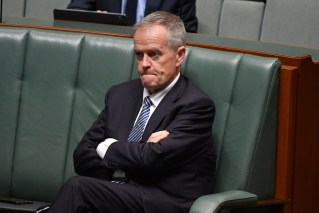Travel bans leave tourism bleeding $1b per month as education, exports suffer
Travel bans are costing the tourism sector as much as $1 billion a month and the loss of international students could tally $500 million, more if the bans extend into the second semester, according to a new business coalition.


The higher level of unemployment will shape the type of holidays Australians have Photo: ABC
Exports have also been severely affected and the Chamber of Commerce and Industry Queensland said air freight had blown out by as much as five times the normal costs as airlines try to recover costs, while supply chains were starting to break down, which was forcing up commodity prices.
Live animal exports are down 79 per cent, dairy products 73 per cent, food and beverage 31 per cent and live marine was down 62 per cent.
Meanwhile, the Committee for Brisbane has brought together a key coalition of businesses to form the Queensland Response and Recovery Coalition to lobby government and point the way forward.
Some of its suggestions in a report from a meeting of the key industries include removing or suspending land tax, the underwriting of a deferral of local government rates on commercial premises and co-ordination with hotel owners and managers to explore opportunities to provide free, emergency accommodation to renters who have been evicted or forced to vacate their tenancies.
“The QRRC calls on governments to legislate or regulate to stop evictions for renters whose incomes have stopped, through no fault of their own,” its report said.
Committee for Brisbane chief executive Barton Green said business believed the state and the country would recover from COVID-19 but immediate attention was needed for planning the longer-term recovery strategies, as well as dealing with the immediate impacts.
Green said the meeting called on governments to focus funding and support on labour-intensive industries that could quickly pick up new workers, such as in infrastructure and construction.
The property industry told the meeting that if necessary, construction sites could be quarantined and treated as a special place. If it was shut down during the crisis the impact would be far-reaching. Smaller businesses and trade contractors would become financially strained, but so would the larger players.
The tourism sector said there had been major job losses and massive impacts on revenue, with an estimate of $1 billion a month coming from the Queensland Tourism Industry Council.
The newly formed QRRC has called on the State Government to bring forward projects and to invest in industries and sectors where new jobs can be created and sustained during the COVID-19 pandemic. Funding for the retraining and upskilling of workers, managers and employers should also be provided.
It also wants the State Government to consider the establishment of a universal “benevolent fund”, similar to the trade union model, to respond to requests for rent or living expenses assistance from people who have lost jobs. The Government should also consider additional funding for the scale-up companies that can generate significant jobs.
The Government could also suspend workers’ compensation premiums in the same way it has worked with payroll tax.












